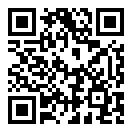Pages:
77-94
Receive Date: 2026/02/03
Accept Date: 2026/02/03
Abstract:
Since the period of Reza Shah, there has been a lot of propaganda on the polarization of "science and religion" or "development and religiosity", so much so that this issue is still raised by default in intellectual gatherings. The purpose of this research is to answer this question: What was the position of the scholars of the Qom Seminary in the first and second Pahlavi era with regard to such widespread propaganda? To answer this question, the writings and speeches of some prominent scholars and graduates of the Qom Seminary from the era of Reza Khan to the Islamic Revolution were analyzed and it was found that the Qom Seminary strongly opposed any suspicion of populism and fueling the said rumor. The scholars of the Qom seminary firstly wrote books to emphasize that science and religion have no conflict and contradiction. Secondly, by explaining the extremely chaotic economic, political and social situation of Iran, they exposed the dishonesty of the government's slogan of development to the people. And thirdly, by explaining their theories about the necessity of progress based on the foundations of religion and combining justice and prosperity in the Islamic model, they encouraged people to confront the first and second Pahlavi regimes. The Islamic revolution can be considered as the result of the failure of western development in Iran and the popularity of the opinions of the seminarians.
چکیده و کلیدواژه فارسی (Persian)
Title :دیدگاه علمای حوزهی علمیهی قم نسبت به توسعه از رضاخان تا انقلاب اسلامی*
Abstract:
از دوره رضا شاه تبلیغات گسترده ای مبنی بر دوقطبی سازی «علم و دین» یا «توسعه و دیانت» انجام گرفت، به گونه ا ی که هنوز هم در مجامع روشنفکری این مسئله به صورت پیش فرض مطرح می شود. هدف این تحقیق پاسخ به این سؤال است که موضع علمای حوزة علمیه قم در دوره پهلوی اول و دوم در مقابل چنین تبلیغات گسترده ای چه بود؟ برای پاسخ به این سؤال نوشته ها و سخنان برخی از علما و فارغ التحصیلان برجسته حوزة علمیه قم از عصر رضاخان تا انقلاب اسلامی واکاوی شد و معلوم گردید حوزة علمیه قم به شدت با هرگونه شائبه عوام گرایی و دامن زدن به شایعه مزبور مقابله کرده است. بزرگان حوزة علمیه قم همچنین با نوشتن کتاب و ایراد سخنرانی اولاً، بر عدم تنافی و تعارض علم و دین تأکید کردند و ثانیاً، با تشریح اوضاعِ به شدت نابسامانِ اقتصادی، سیاسی و اجتماعی ایران، عدم صداقت شعار توسعه از طرف حکومت را برای مردم برملا ساختند و ثالثاً، با تشریح نظریات خود مبنی بر لزوم پیشرفت براساس مبانی دین و جمع شدن عدالت و رفاه در الگوی اسلامی، مردم را به مقابله با دستگاه پهلوی اول و دوم ترغیب نمودند و انقلاب اسلامی را می توان نتیجه شکست توسعه غربی در ایران و اقبال عمومی به نظرات حوزویان دانست.
References:
- ازکيا، مصطفي، جامعهشناسي توسعه، تهران، کلمه، 1377.
- آدميت، فريدون، فکر آزادي، تهران، خوارزمي، 1394.
- پاپکين، ريچارد هنري، دين، اينجا، اکنون، ترجمة مجيد مجيدي، تهران، قطره، ۱۳۷۷.
- تودارو، مايکل، توسعه اقتصادي در جهان سوم، تهران سازمان برنامه و بودجه، 1366.
- توسلي، غلامعباس، نظريههاي جامعهشناختي، تهران، سمت، 1387.
- جعفري، محمدرضا، فرهنگ نشر نو، تهران، فاخته، 1376.
- ذبيحزاده، علينقي، مرجعيت و سياست در عصر غيببت، قم، مؤسسه آموزشي و پژوهشي امام خميني، 1396.
- شاهآبادي، محمدعلي، شذرات المعارف، تصحيح و تحقيق بنياد علوم و معارف اسلامي دانشپژوهان، تهران، ستاد بزرگداشت مقام عرفان و شهادت، 1380.
- شاهرودي، احمد، مدينة الاسلام و روح تمدن، نجف اشرف، بيجا، 1346ق.
- فوزي تويسرکاني، يحيي، مذهب و مدرنيزاسيون در ايران، تهران، مرکز اسناد انقلاب اسلامي، ۱۳۸۰.
- لهساييزاده، عبدالعلي، جامعهشناسي توسعه، تهران، دانشگاه پيام نور، 1380.
- عليمددي، سهيل، «نقش تاريخي آيتالله حائري يزدي»، روزنامه ايران، ش 625 (17/1/1376).
- مطهري، مرتضي، تکامل اجتماعي انسان (مزايا و خدمات مرحوم آيتالله بروجردي)، تهران، صدرا، 1372.
- ـــــ ، مجموعه آثار، تهران، صدرا، تهران، صدرا، 1378.
- موسوي خميني، سيدروحالله، صحيفه امام، تهران، مؤسسة تنظيم و نشر آثار امام خميني، 1372.
- ـــــ ، کشف الاسرار، تهران، بيتا.
- ناظمالدوله، ملکم، «دستگاه ديوان»، در: مجموعه آثار ميرزا ملکمخان، تهران، کتابخانه دانش، 1327.
- Fairchild, H. P., Dictionary of Sociology and Related Sciences, N. J. Littlefield, Adams & Co, 1976.
- Hoult, T. F., Dictionary of Modern Sociology, N.J., Alittlefied, Adams & Co, 1977.
- Lerner, Daniel, "Modernization, Sosial Aspects", in: D. L. Sills (ed.), International Enyclopedia of the Social Sciences, New York, Macmillan and FreePress, 1968
Cite this article:
RIS
Mendeley
BibTeX
APA
MLA
HARVARD
VANCOUVER
APA | MLA | HARVARD | VANCOUVER
ramezan nargesi, Reza.(2026) The Viewpoint of the Scholars of the Qom Seminary about Development from Reza Khan’s Period to the Islamic Revolution. , 19(1), 77-94
APA | MLA | HARVARD | VANCOUVER
Reza ramezan nargesi."The Viewpoint of the Scholars of the Qom Seminary about Development from Reza Khan’s Period to the Islamic Revolution". , 19, 1, 2026, 77-94
APA | MLA | HARVARD | VANCOUVER
ramezan nargesi, R.(2026) 'The Viewpoint of the Scholars of the Qom Seminary about Development from Reza Khan’s Period to the Islamic Revolution', , 19(1), pp. 77-94
APA | MLA | HARVARD | VANCOUVER
ramezan nargesi, R. The Viewpoint of the Scholars of the Qom Seminary about Development from Reza Khan’s Period to the Islamic Revolution. , 2026; 19(1): 77-94
 / Assistant Professor of the History of Contemporary Thought, the Imam Khomeini Institute for Education and Research / nargesi@iki.ac.ir
/ Assistant Professor of the History of Contemporary Thought, the Imam Khomeini Institute for Education and Research / nargesi@iki.ac.ir



